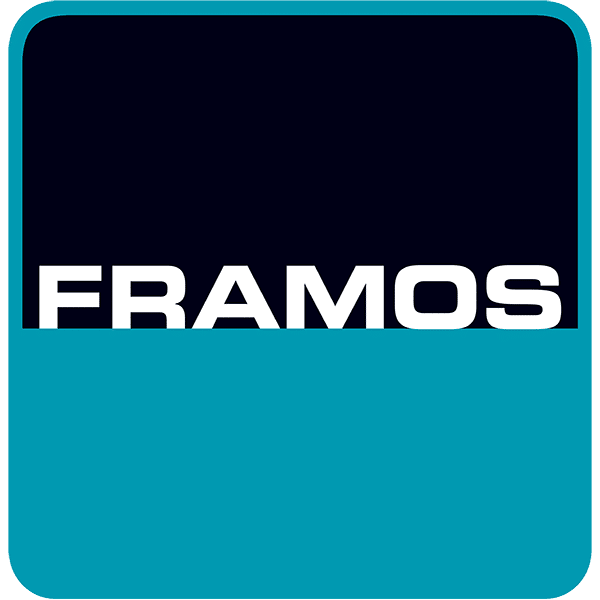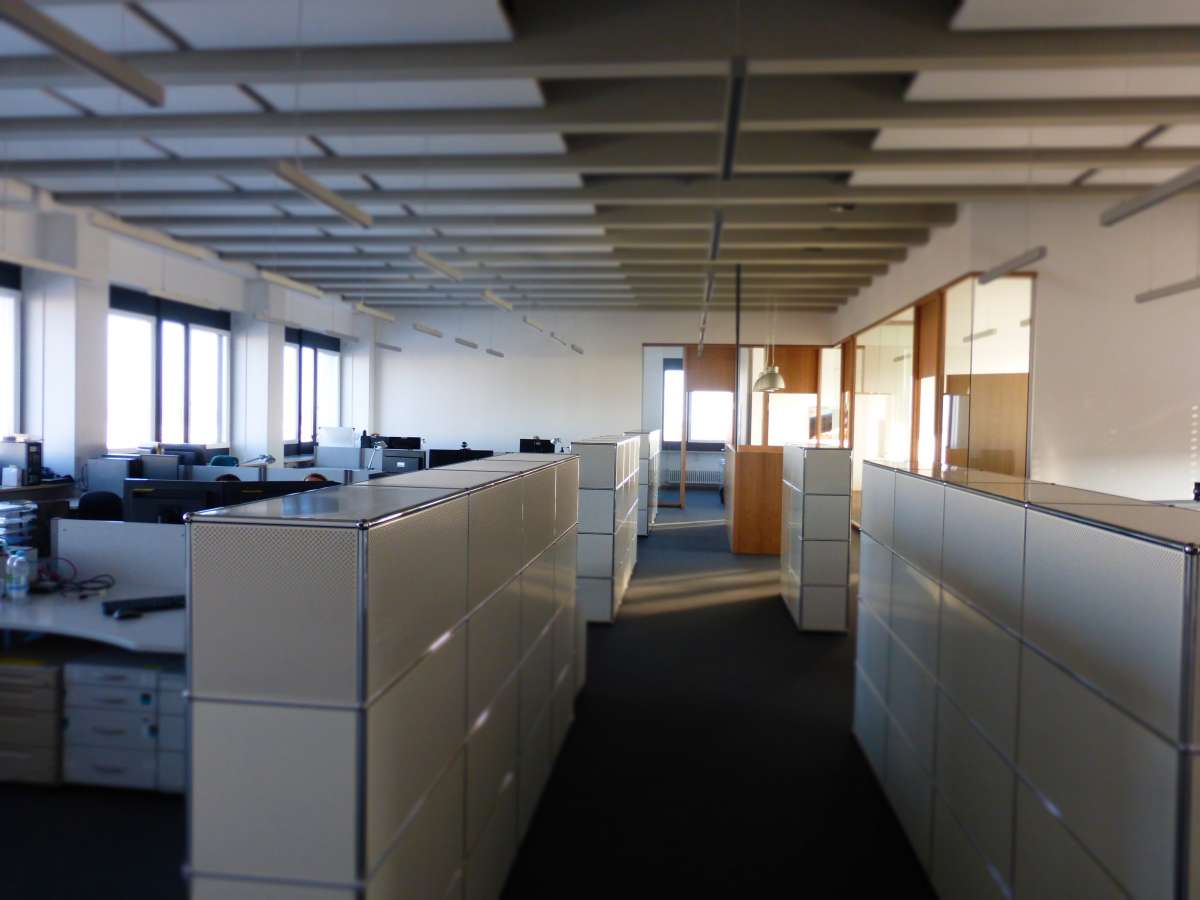The COVID-19 pandemic is without doubt one of the biggest disruptions of recent decades. There will be no return to normality as we knew it. Business and society will be different post-COVID-19. FRAMOS, the vision technology company, shows how successful a medium-sized German family-owned company are navigating the crisis and setting out to shape the new future.
For years, FRAMOS has been an internationally operating leader in image processing. Through its partnerships in China, the company felt the effects of the COVID-19 crisis early on at production and logistics levels. Weeks before COVID-19 struck in Germany, FRAMOS had to react to secure its international supply chain. This gave FRAMOS an undoubted advantage in knowing what was in store for Europe and Germany. But since China is not Europe or Germany, it took more than just applying Chinese knowledge of how to work in the pandemic. FRAMOS benefited from several strengths that it has cultivated over the years as an innovative family business.
Decentralisation Beats Centralisation (Sense of Family)

FRAMOS has long relied on decentralised structures and autonomy, i.e. precisely the working methods that crisis situations demand. Put simply: it depends on the personal initiative of each individual. For example, when FRAMOS tried to implement findings from Chinese companies in its Italian subsidiary in Milan – one of the first major Covid-19 hotspots in Europe – it soon became clear that this would not work. The needs of customers and employees were just too different, as were the processes themselves. Consequently, the Italian employees utilised the findings from China, but reinterpreted them in their own way. Within a few days, on their own initiative, they created processes and initiatives locally that worked for Italian conditions. These findings were then passed on to other locations, which in turn developed them for their own needs. As a result, the North American subsidiary was particularly well equipped:
“The dialogue we had with our European colleagues was invaluable. We were able to adapt the measures for our situation in the United States at an early stage, and were very well prepared when the pandemic arrived,” says Chris Barrett, Chief Product Officer in Canada.
Smart Digitalisation As a Mission
FRAMOS has never seen digitalisation as a threat or a forced necessity – the whole company was quick to view it as an opportunity. Accordingly, the company has pursued an integrated digitalisation strategy for many years, in which innovation, communication and processes are interlinked. What was originally intended to enable a faster and more innovative response to customers has now turned out to be a decisive advantage. For example, during the COVID-19 crisis there was no need to implement last-minute home-working or software solutions. The entire technical infrastructure was already in place, and already in use. From one day to the next, it was possible to switch intelligently to home-working solutions, while at the same time putting measures in place to protect production employees – such as reduced shifts, safeguarded jobs and much more.
A special challenge was to create the interfaces between production staff and employees who stayed at home. Damir Dolar, Head of Embedded Engineering in Croatia, is proud of the fact that efficiency dropped by only 7% during this difficult phase. This is remarkable, as it turned out that many customers were classified as “systemically important” by their governments. While other companies suffered from declining orders, FRAMOS faced the challenge of running at near full capacity under difficult conditions, and thus maintaining supplies to vital sectors such as medical and manufacturing engineering.
Personal Responsibility Through Togetherness
What technology cannot replace, however, is trust in employees and their ability to work independently and assume new challenges.
“Cloud solutions are standard for us, but they are not enough on their own. We also needed creativity to adapt existing solutions. Digitalisation is more than just bringing in a few computer systems, it is a way of thinking,” says Lorenzo Cassano, Vice President Business Development in Italy.
He is convinced that without the culture of personal responsibility, successful digitalisation would not have been possible and FRAMOS would not have been able to navigate through the crisis so quickly.
As a result, decision-making structures were hardly interrupted and teams were able to remain fully functional in small groups. These small independent units do not conflict with a sense of togetherness, however. On the contrary, they are an important part of the corporate identity. At FRAMOS, enthusiasm for innovation is something that everyone can identify with.
 It is precisely this feeling of togetherness that is put to the test when suddenly many employees are working from home. Communication requires more effort, while at the same time its emotional quality decreases and it is less effective as a “social cement”. Not only did working methods change, but also team activities that previously took place in person were continued in a different form during the crisis. For example, the popular yoga classes – which even the CEO takes part in – have been held virtually ever since. This also had the valuable side effect of counteracting extra stress resulting from balancing home-working with family life. Not only were existing arrangements adapted, but new possibilities for interaction were deliberately created – such as a virtual lunch break as an opportunity to talk about things outside of work, and a team chat where everyone could share uplifting and moving experiences in their private lives relating to the COVID-19 situation.
It is precisely this feeling of togetherness that is put to the test when suddenly many employees are working from home. Communication requires more effort, while at the same time its emotional quality decreases and it is less effective as a “social cement”. Not only did working methods change, but also team activities that previously took place in person were continued in a different form during the crisis. For example, the popular yoga classes – which even the CEO takes part in – have been held virtually ever since. This also had the valuable side effect of counteracting extra stress resulting from balancing home-working with family life. Not only were existing arrangements adapted, but new possibilities for interaction were deliberately created – such as a virtual lunch break as an opportunity to talk about things outside of work, and a team chat where everyone could share uplifting and moving experiences in their private lives relating to the COVID-19 situation.
Fail Forward – Always Looking Ahead
 Of course not everything at FRAMOS worked smoothly right away. But then here too, without failures there can be no innovation. To maintain a high level of success in the long term calls for an active culture of dealing with setbacks. For years, FRAMOS has practised the fail-forward principle. With every setback, the question is always asked: How can the knowledge gained be used for success on other levels or in other ways? So a setback is never a dead end – it always initiates a new innovation process. This fail-forward thinking has proven particularly effective during the crisis, when new solutions had to be found constantly. But it also characterises the approach that FRAMOS employees take to shaping the future. Although events and business trips may no longer happen in the old familiar form, there is still a desire to strengthen customer relationships.
Of course not everything at FRAMOS worked smoothly right away. But then here too, without failures there can be no innovation. To maintain a high level of success in the long term calls for an active culture of dealing with setbacks. For years, FRAMOS has practised the fail-forward principle. With every setback, the question is always asked: How can the knowledge gained be used for success on other levels or in other ways? So a setback is never a dead end – it always initiates a new innovation process. This fail-forward thinking has proven particularly effective during the crisis, when new solutions had to be found constantly. But it also characterises the approach that FRAMOS employees take to shaping the future. Although events and business trips may no longer happen in the old familiar form, there is still a desire to strengthen customer relationships.
“Customers want personal interaction, but they also need the social aspect,” says Ron Low, Head of Sales Americas and APAC. “We can provide this through online product shows and webinars with top-class experts,” he adds.
Though he also notes that there is still much that needs to be worked out: How do you bring together participants from different continents and time zones? How can you enable confidential discussions with customers at online trade fairs in a practical way? These are all questions for which solutions are currently being developed.
But it is not only the form of customer relationships that will change. “COVID-19 will completely revolutionise our society and the way we work and live, even when a vaccine is available,” believes CEO Dr. Andreas Franz.
Remote diagnosis by doctors – which has become an enforced necessity – will be hard to do without in the future. How else could you obtain real-time advice from medical experts? This requires new high-performance medical systems, for which FRAMOS is already developing solutions. But there are also new opportunities in the private sector.
Within the company, the example is often cited of the grandmother who wants to attend her grandson’s football match. Before COVID-19, it was a matter of course that the family would go to pick him up. But during the COVID-19 crisis, she had to watch it on the family’s live stream from their mobile phone. In the future, she may even prefer to witness such moments from the comfort of her home – except not via a jerky streaming video, but with high-resolution images delivered by FRAMOS Imaging Systems.
Into the Future With Confidence

Precisely because COVID-19 is bringing many changes, CEO Dr. Andreas Franz is confident about the future. He is excited about the possibility of creating something new. Although German family-owned businesses have undergone significant transformations in recent decades, they have retained their core values, humility, and responsibility.
“We should be aware of our strengths, and at the same time humbly devote ourselves to the challenges we have to solve for the next generations. There is a lot to do.” says Dr. Franz.
Ron Low agrees with Andreas Franz, and after a moment’s thought, he follows with a smile: “And if something fails, we just fail forward.”











